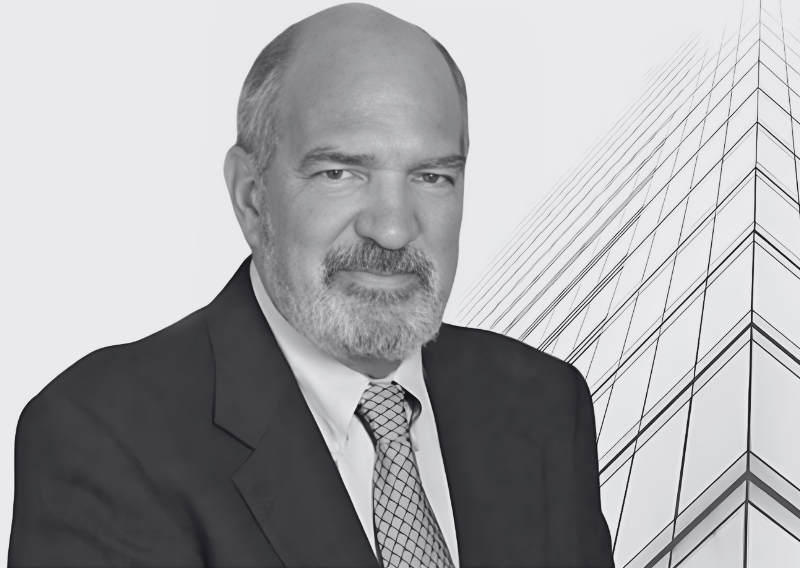Yet another former precious metals trader from JPMorgan has been indicted for spoofing and price manipulation by the US Department of Justice. Between all the criminal guilty pleas and indictments to date, it begs the question – were there any precious metals traders at JPMorgan which weren’t engaged in illegal trading activities? From my close professional observation for more than a decade, I would be dumbfounded if any JPMorgan precious metals traders were on the up and up. Perhaps it might be more expedient for the Justice Department to list the traders at JPMorgan which it considered as non-criminal.
I would urge you to not only read the announcement of the superseding indictment above, but take some time to also skim the actual indictment at the bottom of the linked announcement. Let me confine my remarks to what stood out to me in the new indictment, which can be described as confirmatory rather than involving brand new revelations. However, the superseding indictment did reveal some new things and certainly connected a number of important dots.
The new indictment confirmed that traders for JPMorgan, effectively, favored and rewarded certain of the bank’s own clients at the expense of and to the detriment of other bank clients, thus violating and making a mockery of any sense of fairness thought to exist in an aboveboard fiduciary relationship. The indictment reconfirmed that JPMorgan’s clients who held “barrier’ type option contracts with the bank saw their option contracts made worthless by illegal spoofing and price manipulation.
But new were the allegations that the indicted JPMorgan traders also unfairly favored certain high-revenue hedge fund clients. JPM traders “rewarded” certain big hedge fund clients by illegally manipulating prices to accommodate certain orders in a discriminatory manner. I understand that a broker would and should fight to get the best execution possible for a client – but not by resorting to illegal trading practices. This is a very important point made by the Justice Department.
And since the Justice Department went out of its way to include the favoring of certain high-revenue hedge fund clients of JPMorgan as an impetus for the illegal spoofing by its traders, I’m curious if the DOJ is following up with these hedge funds for receiving ill-gotten favors. Did the hedge funds in question not know they were the beneficiaries of illegal trading practices? After all, it takes two to tango, even if the tango is illegal.
Most confirmatory was the Justice Department describing spoofing as the illegal trading tool I have long maintained by looking beyond the extremely short term price effect of spoofing to the obvious broader application of what could result from having the ability to artificially set short term prices. Spoofing isn’t done just to artificially set prices to make a quick profit. The new indictment indicates the existence of a longer term strategy by JPMorgan in which spoofing was an integral tool used to effect unfair and illegal results.
I must stop here to point out what I concluded a year ago when the Justice Department announced its first guilty plea by a former trader from JPMorgan for spoofing. I petitioned the DOJ not to view spoofing as the stand-alone illegal trading practice that the original announcement seemed to suggest, but as the tool it was to accomplish more serious violations. While I suppose I should be encouraged that the DOJ finally seems to be doing just that, namely, identifying spoofing as a tool, I’d be lying if I said I thought the Justice Department was taking my advice as intended.
http://silverseek.com/commentary/crack-dike-17474
Yes, the DOJ does indicate that spoofing is an illegal tool to effect illegal ends, but it is avoiding the ultimate illegal activity in gold and silver that spoofing has enabled. Here I am referring to the fact that JPMorgan has used spoofing as a tool that enabled it to always take profits and never take a loss when it increased its short positions in COMEX gold and silver futures for more than a decade. And the fact that JPMorgan used spoofing, among other illegal trading mechanisms, to suppress prices by excessive and concentrated short selling in COMEX gold and silver futures to acquire more physical gold and silver on the cheap than any private entity in history.
Here it is clear that the Justice Department is avoiding the obvious – focusing on spoofing as a tool that enabled the crimes it chose to see, so as to avoid focusing on JPMorgan’s much more serious crime of never taking a loss and accumulating physical metal on the down low. Let’s face it – it is impossible that the Justice Department doesn’t see this, as it could not possibly be that incompetent. Therefore, the only reasonable conclusion is that the Justice Department is engaged in selective prosecution. Shame on it.
There is one other theme that comes from the superseding indictment that confirms something else that I’ve previously claimed – the Justice Department has gotten in line with JPMorgan’s corporate interest to play the role of Sgt Schultz on Hogan’s Heroes and pretend that senior management had absolutely no knowledge of the many thousands of instances of illegal trading activities of its long time precious metals traders. Imbedded in the superseding indictment is the message that the traders acted with no knowledge of senior bank management as to what was going on for more than a decade.
In other words, the Justice Department is aiding the bank in its attempt to throw the traders under the bus and go along with the charade that senior management saw nothing, heard nothing and knew nothing. That’s preposterous for an number of reasons, not the least of which is that JPMorgan is known to be the best managed US financial institution and that its CEO is considered to be the most plugged in, hands on manager of all and that these repetitive illegal trading acts went on for more than a decade. On a personal level, I’ve sent the bank every one of my articles (more than a thousand) spelling out JPMorgan’s manipulation of silver and gold for all this time and before that notified its board of directors and former chief legal counsel.
All this brings me to a personal dilemma whose outcome is beyond my control. This is no laughing matter (like watching your mother-in-law drive off a cliff in your new Porsche), but a genuine dilemma whose resolution is of profound significance on a wide variety of important matters. It is clear to me that the Justice Department, like the CFTC before it, is deliberately avoiding the most critical issue of all, namely, whether JPMorgan as an institution manipulated the silver and gold market in the manner I’ve described (never taking a loss and accumulating massive hoards of physical metal) for more than ten years. My dilemma is this – while I am frustrated that the Justice Department is avoiding the obvious, at the same time I understand (and agree) with the deliberate avoidance.
While seeing the Justice Department (or the CFTC) truly crack down on JPMorgan would be the right thing as far as the rule of law and would bring closure and satisfaction to my life’s work of exposing and ending the manipulation of silver (and gold), I fear the wider consequences of such a crackdown. I firmly believe that should JPMorgan’s corporate role in the silver and gold manipulation be attacked by the Justice Department, it would ultimately result in JPMorgan ceasing to exist as a going concern. The consequences and fallout from that would result in untold collateral damage to the US economy, financial system and its citizens. I am not being overly dramatic – that is how I feel and this is at the heart of my dilemma.
From my point of view, the best resolution at this point is for the manipulation to end with no official reference to JPMorgan’s manipulation of silver and gold and for the price, particularly for silver, to be set free. And that is what I expect to occur, although I still can’t tell you exactly when this will occur. Of course, all that most are interested in is when this manipulation will end, which I suppose is another dilemma in and of itself in this sense - should silver and gold prices get more thoroughly washed out to the downside one more time, it will set up the final blast higher. But who the heck wants to endure yet another deliberate price takedown after all this time?
As I indicated on Saturday, I found the key feature of the latest and other recent Commitments of Traders (COT) reports to be the extraordinarily large amount of short covering by JPMorgan in both silver and gold, particularly in relation to the lack of commercial short covering in general. Certainly, should we get a more pronounced price decline, in addition to the necessity of aggressive managed money selling and short selling driving the price lower and the general commercial buying which will meet that selling, it must be expected that JPMorgan would participate in that overall commercial buying. Therefore, in the event of a more pronounced price takedown ahead, should that takedown take place, it must be expected that JPMorgan will end up buying even more COMEX silver and gold futures than it has bought to date.
The problem with that, as I see it, is that it’s one thing for the Justice Department to hold off on cracking down on JPMorgan out of the wider concern for what such a crackdown would ultimately mean to society in general, but does the DOJ have to so coddle JPMorgan so as to allow it to profit even more at this point? Does the Justice Department have no sense of decency and concern for the rule of law that it would allow JPM to feather its nest even more than it has to date?
Ted Butler


